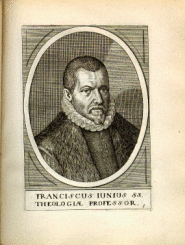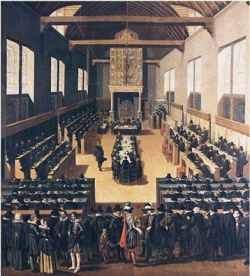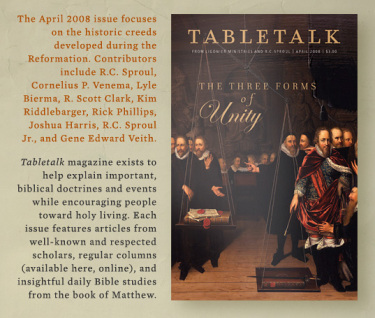 Jesus Christ: The True Israel
Jesus Christ: The True Israel
If we stand within the field of prophetic vision typical of Israel’s prophets after the exile and captivity, and with them we look to the future, what do we see? Israel’s prophets clearly anticipate a time when Israel will be restored to its former greatness. But will that restoration of the nation of Israel to its former glory mirror the days of the monarchy? Or does the monarchy itself point us to the monarch?
Such a prophetic vision includes not only the nation, but the land of Canaan, the city of Jerusalem, the throne of David, as well as the temple in Jerusalem. Since the nation had been divided and the people were hauled off into captivity in Babylon some five centuries before the coming of Jesus, the magnificent temple destroyed and the priesthood gone, such prophetic expectation related to Israel’s future quite naturally spoke of a reversal of fortune and the undoing of calamity which had come upon the nation.
But with apostolic hindsight Peter speaks of how “concerning this salvation, the prophets who prophesied about the grace that was to be yours searched and inquired carefully, inquiring what person or time the Spirit of Christ in them was indicating when he predicted the sufferings of Christ and the subsequent glories. It was revealed to them that they were serving not themselves but you, in the things that have now been announced to you through those who preached the good news to you by the Holy Spirit sent from heaven, things into which angels long to look.” (1 Peter 1:10-12).
In Isaiah 41:8-9, the prophet spoke of a future restoration of Israel in these terms. “But you, Israel, my servant, Jacob, whom I have chosen, the offspring of Abraham, my friend; you whom I took from the ends of the earth, and called from its farthest corners, saying to you, `You are my servant, I have chosen you and not cast you off.'” The same promise is reiterated in the next chapter of Isaiah (42:1-7), when the LORD declares of his servant, “I am the Lord; I have called you in righteousness; I will take you by the hand and keep you; I will give you as a covenant for the people, a light for the nations”( v. 6). Isaiah continues to speak of this servant in chapters 44 (vv. 1-2) and 45 (v. 4).
Dispensationalists, given their so-called "literal hermeneutic," are bound to interpret such passages literally, thereby assign the fulfillment of these prophecies of Isaiah to a future earthly millennium in which Israel co-exists with Gentiles under the reign of the Davidic king (See Walvoord, The Millennial Kingdom, 302-304; and Pentecost, Things to Come, 503-508). In effect, this amounts to the restoration of the monarchy as Jesus takes his place on David's royal throne and rules the nations from this restored Israel.
But is this how the New Testament interprets these messianic prophecies regarding the servant of the Lord? Who is this servant of the Lord? It is the nation of Israel, or is it Jesus, Israel’s Messiah?
In order to answer this questions, we must see that the gospel writers interpret these prophecies from Isaiah as fulfilled in the messianic mission of Jesus. First, in Matthew 12:15-21, for example, when Jesus withdrew from the crowds who had followed him, Matthew reports that this event fulfilled what had been spoken in Isaiah the prophet. This event serves to demonstrate that Jesus is the true servant of the Lord.
Second, as Jesus cast out demons and healed the sick, Matthew saw in this the fulfillment of Isaiah’s prophecies of a suffering servant who would take upon himself our infirmities and carry our diseases (Matthew 8:17 with Isaiah 53:4).
Third, in Luke’s gospel, Luke speaks of both Israel (cf. Luke 1:54) and David as the servant of God (Luke 1:69). Yet in Acts, Luke pointedly speaks of Jesus as the servant of God (Acts 3:13). After his crucifixion, God raised Jesus from the dead so that people everywhere might be called to repentance (3:26).
Fourth, when the Ethiopian eunuch hears a reading from Isaiah 53:7-8 and asks Philip about whom this prophecy refers, Luke tells us that Philip informed the Ethiopian that this passage does indeed refer to Jesus (Acts 8:34-35).
But this is not all that is in view here. In Hosea 11:1, Hosea predicted a time when “Israel was a child, I loved him, and out of Egypt I called my son.” But in Matthew 2:15, the evangelist tells us that Hosea’s prophecy was fulfilled when his parents took Jesus to Egypt to protect him from Herod’s “slaughter of the innocents” (Matthew 2:3-18). Yet, after Herod had died, God called Jesus and his family to return to Nazareth. Matthew takes a passage from Hosea, which clearly refers to Israel, and tells his reader that this passage is now fulfilled in Jesus Christ! He does this to prove to his largely Jewish audience that Jesus is the servant of the Lord, foretold throughout the Old Testament (especially Isaiah).
By now it should be clear that according to many New Testament writers, Jesus is the true servant, the true son and the true Israel of God. Recall too that it was Isaiah who spoke of Israel and the descendants of Abraham as the people of God. It as through the seed of Abraham that the nations of the earth would be blessed.
Therefore, even as Jesus is the true Israel, he is the true seed of Abraham. This is the point that Paul is making in Galatians 3:7-8, when he says “know then that it is those of faith who are the sons of Abraham. And the Scripture, foreseeing that God would justify the Gentiles by faith, preached the gospel beforehand to Abraham, saying, `In you shall all the nations be blessed.'”
Paul’s words here, are important for several reasons. First, Paul tells us that Abraham believed the very same gospel that he preached to the Gentile Galatians. There has only been one plan of salvation and one gospel from the very beginning. This, of course, raises very serious questions about the dispensational notion of “clearly distinct” redemptive purposes for national Israel and the Gentiles, as is evident when Paul goes on to say in Galatians 3:29, that “if you are Christ's, then you are Abraham's offspring, heirs according to promise.”
Second, the one gospel promise from the very beginning of redemptive history is that the true children of Abraham, whether they be Jew or Gentile, are heirs of the promise, if they belong to Jesus Christ, the true seed of Abraham. But as Robert Strimple points out, an important word of clarification is certainly in order. “We [amillennarians] say: `Yes, the nation of Israel was the people of God in the old covenant. Now in the new covenant the believing church is the people of God.’ And thus we quickly run past (or we miss the blessed point entirely) the fact that we Christians are the Israel of God, Abraham’s seed, and the heirs to the promises, only because by faith, we are united to him who alone is the true Israel, Abraham’s one seed.” (See Strimple, “Amillennialism,” in Bock, ed., Three Views of the Millennium and Beyond, 89).
The ramifications for this upon one’s millennial view should now be obvious. If Jesus is the true Israel of God, and if the New Testament writers apply to Jesus those Old Testament prophecies referring to Israel as God’s son or servant, then what remains of the dispensationalist’s case that these prophecies remain yet to be fulfilled in a future millennium? They vanish in Jesus Christ, who has fulfilled them!
For more information, Click here: Riddleblog - A Case for Amillennialism - Understanding the End
 Friday, April 4, 2008 at 02:03PM
Friday, April 4, 2008 at 02:03PM  As Scott Clark (Click here: Why There Are No “Golden Ages” « Heidelblog) and Mark Jones remind us (Click here: Seventeenth-Century Eschatology « Thomas Goodwin), some of our own forebears could get a bit carried away with eschatological speculation.
As Scott Clark (Click here: Why There Are No “Golden Ages” « Heidelblog) and Mark Jones remind us (Click here: Seventeenth-Century Eschatology « Thomas Goodwin), some of our own forebears could get a bit carried away with eschatological speculation.











